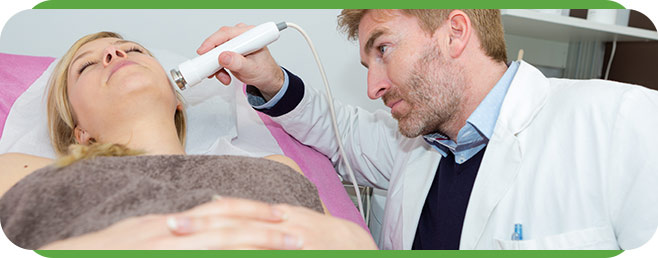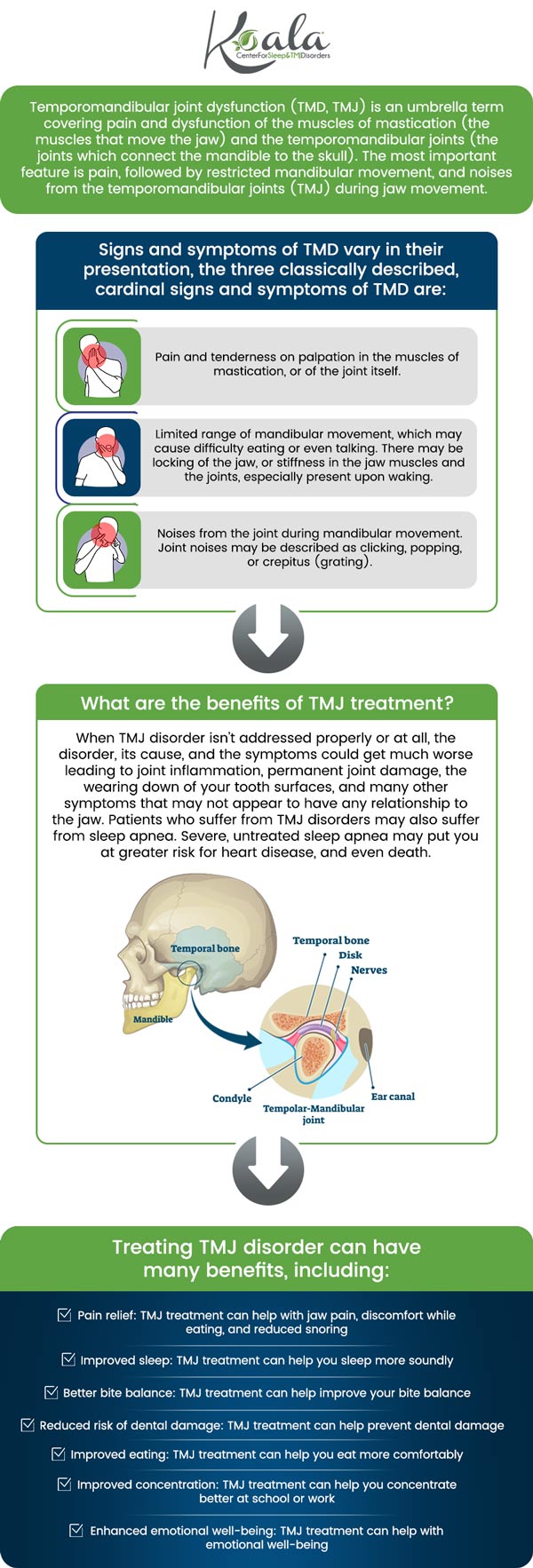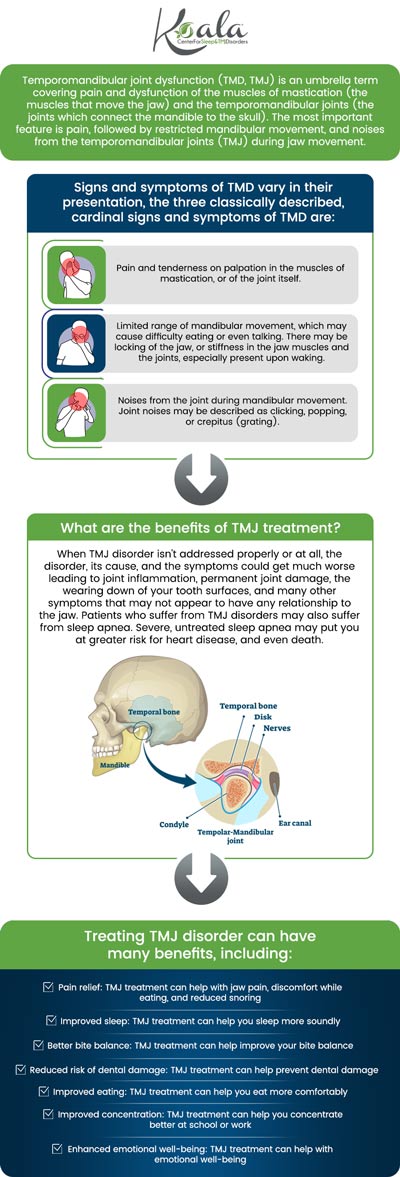What Kind of Doctor Treats TMJ Pain?
If you are experiencing symptoms related to TMJ disorder, visit the sleep specialists at Koala® Center For Sleep & TMJ Disorders today. We can help you find relief from your TMJ pain and symptoms.For more information, please contact us today or request an appointment online. We have convenient locations in Bloomington IL, Peoria/Dunlap IL, El Paso TX, and Wausau WI.




Table of Contents:
What is TMJ?
How is TMJ diagnosed?
What kind of doctor treats TMJ pain?
What causes TMJ to flare up?
What are the symptoms of TMJ?
There are many joints in the human body, each with its own unique function. The most active joint is the TMJ, or temporomandibular joint, which refers to two joints, each one located at the point where the jaw and skull connect. They each have their articular disk, which partition the synovial cavities to allow separate movements to occur in each space. Because the TMJ is so complex, there are several problems that can occur with it. Fortunately, there are medical professionals who dedicate their careers to helping people resolve issues with their TMJ.
TMJ is an abbreviation of the temporomandibular joint, although it is commonly used to refer to problems affecting this joint. Issues with these joints are also known as temporomandibular joint disorders or TMD. TMDs are painful and can lead to constant discomfort since the jaw is in motion throughout the day. The temporomandibular joint is hard at work when eating, drinking, talking, yawning, or doing just about anything with the mouth. The temporomandibular joints are the most complex joints in the human body and have many intricate interworking parts. Although TMJ is not a life-threatening condition, it can negatively impact the quality of life.
The first step of treatment is to properly diagnose the underlying cause of TMJ disorder. Including intense headaches and ear pain, since TMJ symptoms are shared across many other conditions, TMJ can be hard to diagnose. The only way to determine whether you have TMJ is to see a qualified dentist and get a professional TMJ diagnosis. With proper care, the intensity of TMJ flare-ups can be decreased, and their duration can be reduced. In some cases, they can even be avoided altogether.
The most qualified medical professional to treat TMJ pain is a dentist. Dentists are specialists trained in the anatomy of the jaw and diagnosing dysfunction in the bite and physical abnormalities. The temporomandibular joint is the most complex joint in the human body, and TMJ pain can be equally as complex. A skilled dentist can help determine the underlying cause of TMJ disorder and can also discover additional symptoms unknown to the patient that are caused by misalignment of the jaw.
TMJ pain can strike at any time. What causes TMJ to flare up is as different as the people that are affected by it. If you have been living with TMJ for a period of time, be sure to avoid any known triggers as they may also affect the duration and intensity of a TMJ flare-up. The main causes of TMJ flare-ups are:
– Stress that leads to jaw clenching or bruxism
– Hormonal changes, including birth control or supplements
– Hard and chewy foods can strain the TMJ
– Dehydration can decrease joint lubrication of the TMJ
– Poor posture, which can throw the jaw forward
– Weak neck muscles that can put extra strain on the TMJ
– Certain medications that promote grinding and clenching
– Vitamin D deficiency can cause muscle pain
TMJ disorders can cause the following symptoms:
– Pain, particularly in the chewing muscles/jaw joint
– Radiating pain in the face, jaw, or neck
– Jaw muscle stiffness
– Limited movement or locking of the jaw
– Painful clicking, popping, or grating
If you or someone you love is looking for a TMJ doctor, trust the qualified TMJ specialists at Koala® Center For Sleep & TMJ Disorders. Our kind and compassionate professionals are experienced in treating TMJ disorders and can help you find relief from your symptoms. Call us today to book an appointment.

Additional Services You May Need
▸ KoalaKIDZzz®
▸ Sleep Apnea
▸ Snoring
▸ TMJ Disorder
▸ Fatigue
▸ Sleep Disorders
▸ Weight Loss
▸ CPAP Alternative
▸ Oral Appliances




